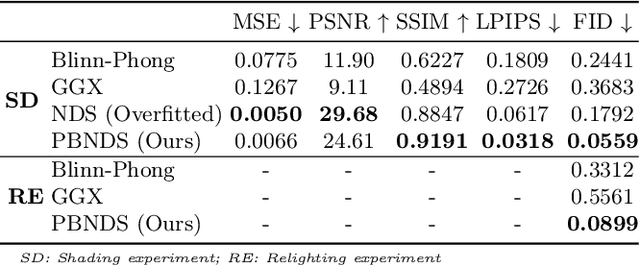Beyond Reconstruction: A Physics Based Neural Deferred Shader for Photo-realistic Rendering
Paper and Code
Apr 16, 2025



Deep learning based rendering has demonstrated major improvements for photo-realistic image synthesis, applicable to various applications including visual effects in movies and photo-realistic scene building in video games. However, a significant limitation is the difficulty of decomposing the illumination and material parameters, which limits such methods to reconstruct an input scene, without any possibility to control these parameters. This paper introduces a novel physics based neural deferred shading pipeline to decompose the data-driven rendering process, learn a generalizable shading function to produce photo-realistic results for shading and relighting tasks, we also provide a shadow estimator to efficiently mimic shadowing effect. Our model achieves improved performance compared to classical models and a state-of-art neural shading model, and enables generalizable photo-realistic shading from arbitrary illumination input.
 Add to Chrome
Add to Chrome Add to Firefox
Add to Firefox Add to Edge
Add to Edge